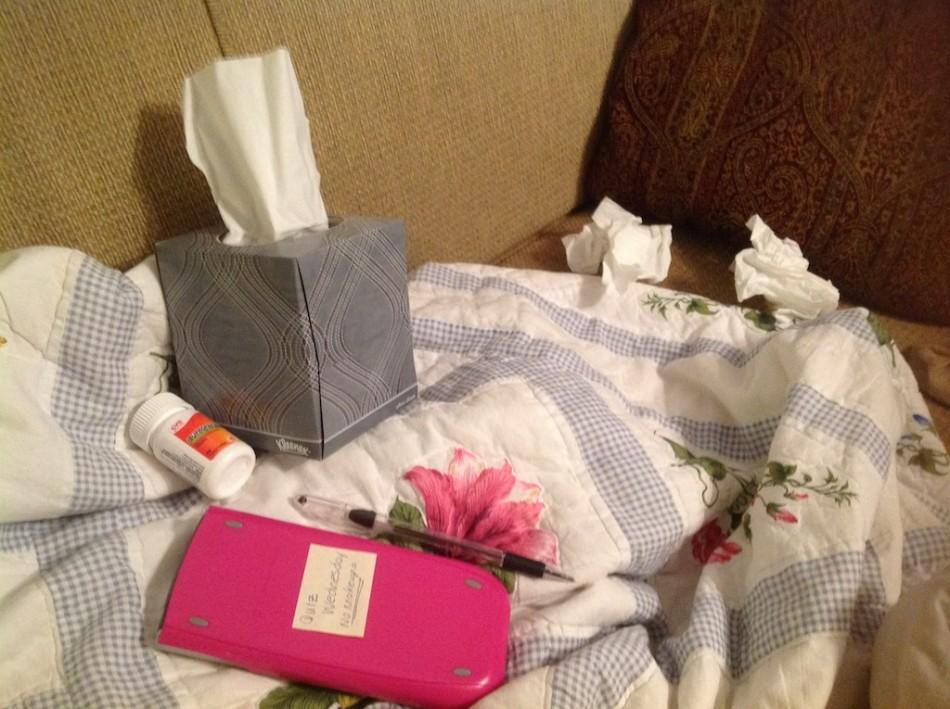Classwork policy must accommodate for sick students for a safer flu season
As Jefferson pushes through flu season, more and more students are having to choose between their interim grade or their physical health.
March 8, 2014
As the months of February March roll under way, the number of flu cases peaks to the highest it will be all year. Students get the same old lecture from the school about getting rest and keeping away from others until deemed no longer contagious. However, with each passing winter, staying at home to rest has become more and more of a challenge due to the unrelenting deadlines and the already accelerated pace due to the inevitable snow days in January and February.
According to the Center for Disease Control and Prevention (CDC), the number of flu cases was highest in February for 14 years out of the years between 1982 and 2012, and the second highest peaking month was March, at 5 years between 1982 and 2012. As Jefferson pushes through some of the most common months for the flu’s occurrence, more and more students are contributing to that statistic, as they are not staying home from school in order to recover.
Because students never take days off when sick, any germ brought in to Jefferson by one student spreads around the building like wildfire. Pretty soon, everyone has the sniffles. Because students are afraid to miss even a day, the recovery from something as simple as the common cold can take weeks, rather than just a few days. In fact, according to WebMD, this year’s flu can be expected to last three to seven days. However, if gone uncared for, cough and fatigue can last for over half a month.
But why don’t students just take those couple days off in order get well? The way many classes at Jefferson are set up, it can actually be directly detrimental to the student’s grade to miss a day in which a quiz is scheduled. Because the system allows no make-ups for these quizzes, the score of the missed quiz is logged into the grade book as a zero until the end of the quarter, and the lowest two quiz grades are dropped from the system.
So if a student misses two quizzes in his or her class, he or she no longer has room for failure on homework quizzes for the quarter. Also, as interim grades come out in the next couple of days, the grade report will reflect the missed quiz. This system, although beneficial in many ways, provides the motivation for students to come into class even though they are feeling under the weather, as I personally have been doing for the past week and a half, just to take the quizzes and give their grade any sort of boost possible.
Not only is there a potential for grades to fall during this flu season, but staying home would mean missing important information shared in all classes. Of course, when given the decision, the majority of Jefferson students choose to run the risk of compromising the health of themselves or others by coming to school. The flu is not something to be taken lightly. On average, 200,000 Americans are hospitalized every flu season, and the number of deaths each year ranges from 3,000 to 49,000 American people. Most of these cases occur in February and early March.
However, if there were a different policy in place for these classes, particularly one which is more friendly to missing a few days of school during the flu season, students at Jefferson would be happier, healthier and able to perform their best during the school day. Students should be able to feel like they can make the right choice to stay home, and their grades won’t be suffering because of it. This can only be done if changes are made to the way classwork is handled in the grade book at Jefferson.






